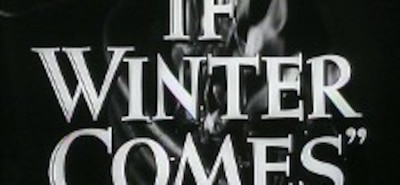If Winter Comes

Brief Synopsis
Cast & Crew
Victor Saville
Walter Pidgeon
Deborah Kerr
Angela Lansbury
Binnie Barnes
Janet Leigh
Film Details
Technical Specs

Synopsis
In 1939, in the English village of Penny Green, the life of married author, publisher and idealist Mark Sabre is thrown into turmoil when he learns that his former sweetheart, Nona Tybar, has returned to town and wants to rekindle their romance. Mark's wife Mabel, a humorless but fair woman, knows that her husband is a permissive man who always likes to see both sides of an issue, and she decides that it would be best not to interfere in his attempts to spend time with Nona. This way, Mabel reasons, he will be able to compare her to his ex-girl friend and decide for himself whom he prefers. At about the same time that Nona arrives in Penny Green, Mr. Fortune, the head of Mark's publishing company, begins a campaign to deny Mark the partnership appointment he expects. Alone with Mark for the first time in years, Nona tells him that leaving him to marry another man was a mistake, and that she wants a second chance with him. Mark agrees with Nona that they were meant for each other, and suggests that they resume their romance in secret. One day, while picnicking in a park, Nona tells Mark that she wants both of them to leave their spouses and elope. Nona's husband Tony eventually becomes suspicious of his wife's association with Mark and, while visiting the writer at his office, announces that he is rejoining his military regiment in the hopes of winning back Nona's love. With England on the brink of war, Nona fears for Tony's safety, and decides that she will not leave him until he returns. Mark tries to subvert Tony's ploy by joining the army himself, but a doctor refuses to enlist him. Soon after England goes to war, Nona joins the Women's Auxiliary Force and bids Mark farewell. Nona, trying to convey her desire to return to Mark, quotes a line from a poem by Percy Bysshe Shelley: "O, wind, if winter comes, can spring be far behind." Time passes, and Mark finds himself in trouble both at home and at the office when he is unjustly accused of having an affair with Effie Bright, one of his co-workers. Mabel vows to divorce Mark, who is then fired by Mr. Fortune to avoid a possible scandal. Effie, who has been thrown out of her parents' home, goes to live with Mark, and soon falls in love with him. Mark, however, is still in love with Nona. When Effie is named as the co-respondent in Mabel's divorce suit, she becomes distraught and kills herself. Mark is accused of killing Effie, and things look bad for him at his trial, until Nona, now a war widow, returns to Penny Green and offers testimony that clears him of murder. Back at home, Mark finds a letter from Harold Twyning, the son of one of his former associates, in which the boy confesses that he was the one who impregnated Effie. Rather than publicize the news, Mark decides to end the chain of scandal in his town by burning the letter and concentrating instead on his new life with Nona.

Director
Victor Saville
Cast

Walter Pidgeon

Deborah Kerr

Angela Lansbury

Binnie Barnes

Janet Leigh

Dame May Whitty
Rène Ray
Virginia Keiley
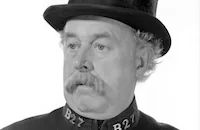
Reginald Owen

John Abbott

Rhys Williams
Hugh French
Dennis Hoey
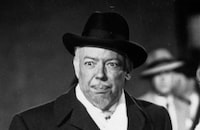
Nicholas Joy

Halliwell Hobbes
Victor Wood
Hugh Green
James Wethered
Owen Mcgiveney
Pat Aherne
James Fairfax
Alex Fraser

Phyllis Morris
Joe Strauch Jr.
Herbert Wyndham
David Martin Jones
Ruth Sanderson
Sally Shepherd

Ian Wolfe
David Dunbar
Richard Glyn
Winston Severn
Sherlee Collier
Norman Leavitt
Wyndham Standing
Vesey O'davoren
Elspeth Dudgeon
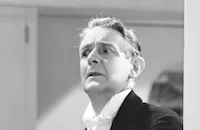
Leonard Carey
Jack Merivale

Holmes Herbert
Cyril Smith
Geoffrey Alan
George Goldsmith
Robin Hughes
Stanley Fraser
Norman Rainey
Gerald Rogers
Olaf Hytten
Major Sam Harris
John Power
Alex Harford
Cyril Thornton
Paul England
Colin Kenny
Martin Liddel
Reginald Sheffield
Veda Ryker
Nina Matleva
Marla Nurmi
Ernest Hilliard
William Stelling
Kenneth Gibson
Arthur Little Jr.
Clive Morgan
Crauford Kent
Reginald Simpson
Ramsay Hill
Stanley Mann
Paula Allen
Tudor Hayes
Virginia Mcdowall
Bryan Reade
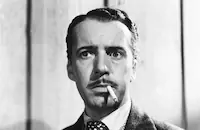
Boyd Irwin
Crew
Peter Ballbusch
Pandro S. Berman
Jack Dawn
George Folsey
Cedric Gibbons
Henry W. Grace
Jack Greenwood
Sydney Guilaroff
Irene
Warren Newcombe
Hans Peters
Marguerite Roberts
Douglas Shearer
Herbert Stothart
Ferris Webster
Edwin B. Willis
Arthur Wimperis

Film Details
Technical Specs

Articles
If Winter Comes
Hollywood gossip columnists always love a good feud, and if they can't find one, they make one up, as was the case with Greer Garson and Deborah Kerr. Articles began to appear in the papers that Garson, thirteen years older than Kerr, was angered that she had been replaced by the younger woman. Kerr dismissed the rumors, saying, "The idea of a feud between us was pure poppycock - or rather, gossip writers' fabrication - the stuff their dreams were made on. Greer was going great guns all through the time of my contract with Metro, and our friendship has lasted from that time to the present day."
Angela Lansbury, as Walter Pidgeon's shrewish wife, had been making a name for herself in Hollywood. She had already proved herself capable of playing a variety of characters, beginning when she was only eighteen, when she appeared as the scheming maid in Gaslight (1944). Her portrayal of the sweet, innocent, and ultimately tragic Sybil Vane in The Picture of Dorian Gray (1945) ironically got her the role in If Winter Comes. Margaret Wander Bonnano wrote in her biography of Lansbury, "Strangely, she was cast because director Victor Saville had been impressed with her performance as Sybil in Dorian Gray. It is hard to find two screen characters who are further apart either in age or in temperament than Sybil Vane and Mabel Sabre. Twenty-two-year-old Angela was aged nearly fifteen years to look middle-aged, but it was sheer professional acting technique that created the illusion of being thirty-five. In his review, Thomas M. Pryor of the New York Times remarked, 'Angela Lansbury is quite believable and proper as the distrusting wife.'"
Newcomer Janet Leigh, who had been discovered by MGM's former top actress, Norma Shearer, remembered her time shooting the film in her autobiography, "In the spring of 1947, I was cast in my second picture, If Winter Comes, starring Walter Pidgeon, Deborah Kerr, and Angela Lansbury. The role was Effie, a poor English waif who gets pregnant by a local village boy before he leaves for the war...Very dramatic, and very English. The studio hired the niece of Sir C. Aubrey Smith to tutor me. I have a good ear, but accents just don't come easily...We read several New Yorker magazines from cover to cover, practicing intonations and inflections, so that the accent would become a familiar and natural part of my speech. We did not read the lines from the script, thus preventing any built-in interpretation. We must have pulled it off, since Victor Saville, the director, wasn't aware of my actual heritage until late in the shooting. The majority of my scenes were with Walter Pidgeon and what a distinguished actor and person he proved to be! He also sponsored me for membership in the Academy of Motion Picture Arts and Sciences, and I was accepted about six months later. That was a proud moment."
While Janet Leigh's character was pregnant in the film, it was Deborah Kerr who was pregnant in real life. By the time filming ended in late summer, 1947, she was five months along. Her daughter Melanie was born December 27th.
Producer: Pandro S. Berman
Director: Victor Saville
Screenplay: A.S.M. Hutchinson (novel), Marguerite Roberts, Arthur Wimperis
Cinematography: George Folsey
Film Editing: Ferris Webster
Art Direction: Cedric Gibbons, Hans Peters
Music: Herbert Stothart
Cast: Walter Pidgeon (Mark Sabre), Deborah Kerr (Nona Tybar), Angela Lansbury (Mabel Sabre), Binnie Barnes (Natalie Bagshaw), Janet Leigh (Effie Bright), Dame May Whitty (Mrs. Perch).
BW-97m. Closed captioning.
by Lorraine LoBianco
Sources:
Deborah Kerr by Eric Braun
There Really Was A Hollywood by Janet Leigh
Angela Lansbury: A Biography by Margaret Wander Bonnano

If Winter Comes
Quotes
Trivia
Notes
The novel on which this film is based was published serially in Everybody's Magazine between December 1920 and July 1921. The title of the film was taken from a line of the Percy Bysshe Shelley poem "Ode to the West:" "If winter comes, can spring be far behind." Hutchinson's novel was also the basis of the 1923 Fox film If Winter Comes, directed by Harry Millarde and starring Percy Marmont and Ann Forest (see AFI Catalog of Feature Films, 1921-30; F2.2666) and for the play of the same name, which opened in New York on April 2, 1923, starring Mabel Terry-Lewis and Cyril Maude. While Hutchinson's novel, as well as the stage and Fox film versions of his story were set around World War I, the period was changed to World War II for this film.
According to contemporary news items in Hollywood Reporter and Los Angeles Times, David O. Selznick purchased the film rights to Hutchinson's story in 1939, at which time Joan Fontaine and Viven Leigh were being considered for the feminine leads, and either Leslie Howard or Laurence Olivier for the male lead. John Cromwell was announced as a possible director. Although Selznick set a tentative start date of March 1, 1940 for the film, he later abandoned the project and sold the rights to Alexander Korda. An October 1942 Hollywood Reporter news item noted that Sheridan Gibney was set to work on the script, but the extent of his contribution to the final film has not been determined. Hollywood Reporter news items in 1943 noted that Robert Donat was set to star and that the picture was to be filmed at M-G-M's London studios.
June 1947 Hollywood Reporter news items indicate that some location shooting took place in Florida, at Winter Haven, which is near Sarasota, and Key Biscayne, and at site forty miles north of Malibu, CA. A July 1947 Hollywood Reporter article noted that the picture set "a new lensing standard" in cameraman George Folsey's use of reflected light to light the actors and settings. The result, according to the article, was a more "life-like" look to the actors, and greater freedom for the actors to move about the set. A December 1947 news item reported that If Winter Comes was the first picture to be released in its entirety on non-flammable film. The film used was Eastman safety base positive, with which M-G-M had been experimenting for a year. The tests showed that film was not only non-flammable, but was more durable than its nitrate counterpart.

Miscellaneous Notes
Released in United States Winter January 1948
Released in United States Winter January 1948


